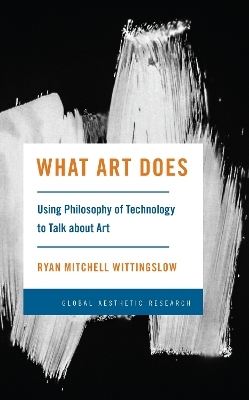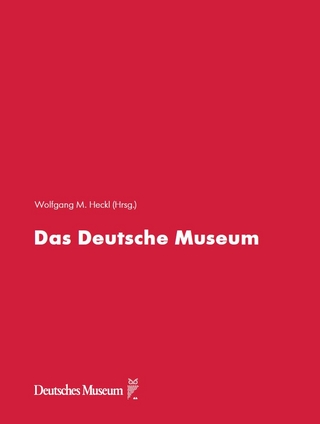
What Art Does
Using Philosophy of Technology to Talk about Art
Seiten
2023
Rowman & Littlefield (Verlag)
978-1-5381-6732-8 (ISBN)
Rowman & Littlefield (Verlag)
978-1-5381-6732-8 (ISBN)
The question of what and how artworks mean things is conventionally satisfied by appealing to literature from either philosophy of art or philosophy of language. This book offers an alternative by positioning art as a type of meaning-making tool whose function can only be understood through the application of the philosophy of technology.
The real pleasure derived from asking what artworks mean drives us to expend so much cognitive energy analysing and discussing cultural artefacts: not just the paintings, sculptures, and installations one might encounter in mainstream galleries, but also novels, films, music, video games, poems, graffiti, comic books, theatre shows, dance performances, and whatever else. Despite both that pleasure and the seriousness with which we take that pleasure, the definition of artistic meaning is often unclear. Consequently, philosophers of art and philosophers of language tend to use a variety of non-overlapping definitions for meaning: as a matter of authorial intention, as the opinions of artworld publics, or as private exegesis.
This book takes a different approach. Rather than working from within philosophy of art or philosophy of language, this book begins with the claim that artworks constitute a special class of tool. Like other tools, artworks are objects that have functions and that furnish affordances. Unlike other tools, though, the functions artworks have and the affordances they furnish are a consequence of a rich—and surprisingly recent—historical and material tradition: a tradition wherein we take artworks as meaning-making things with something to say.
The real pleasure derived from asking what artworks mean drives us to expend so much cognitive energy analysing and discussing cultural artefacts: not just the paintings, sculptures, and installations one might encounter in mainstream galleries, but also novels, films, music, video games, poems, graffiti, comic books, theatre shows, dance performances, and whatever else. Despite both that pleasure and the seriousness with which we take that pleasure, the definition of artistic meaning is often unclear. Consequently, philosophers of art and philosophers of language tend to use a variety of non-overlapping definitions for meaning: as a matter of authorial intention, as the opinions of artworld publics, or as private exegesis.
This book takes a different approach. Rather than working from within philosophy of art or philosophy of language, this book begins with the claim that artworks constitute a special class of tool. Like other tools, artworks are objects that have functions and that furnish affordances. Unlike other tools, though, the functions artworks have and the affordances they furnish are a consequence of a rich—and surprisingly recent—historical and material tradition: a tradition wherein we take artworks as meaning-making things with something to say.
Ryan Wittingslow is an assistant professor at the University of Groningen, a senior Humboldt fellow at TU Darmstadt, and a research affiliate of the University of Sydney. Most of his research sits at the meeting ground between aesthetics, philosophy of design, philosophy of technology, and political philosophy.
Introduction
Chapter 1. Conditions
Chapter 2. Functions
Chapter 3. Affordances
Chapter 4. Artworlds
Chapter 5. Artworks
References
About the Author
| Erscheinungsdatum | 09.09.2023 |
|---|---|
| Verlagsort | Lanham, MD |
| Sprache | englisch |
| Maße | 159 x 240 mm |
| Gewicht | 386 g |
| Themenwelt | Kunst / Musik / Theater |
| Geisteswissenschaften ► Geschichte ► Hilfswissenschaften | |
| Geisteswissenschaften ► Philosophie | |
| ISBN-10 | 1-5381-6732-8 / 1538167328 |
| ISBN-13 | 978-1-5381-6732-8 / 9781538167328 |
| Zustand | Neuware |
| Informationen gemäß Produktsicherheitsverordnung (GPSR) | |
| Haben Sie eine Frage zum Produkt? |
Mehr entdecken
aus dem Bereich
aus dem Bereich
Buch | Hardcover (2024)
Wallstein Verlag
38,00 €


